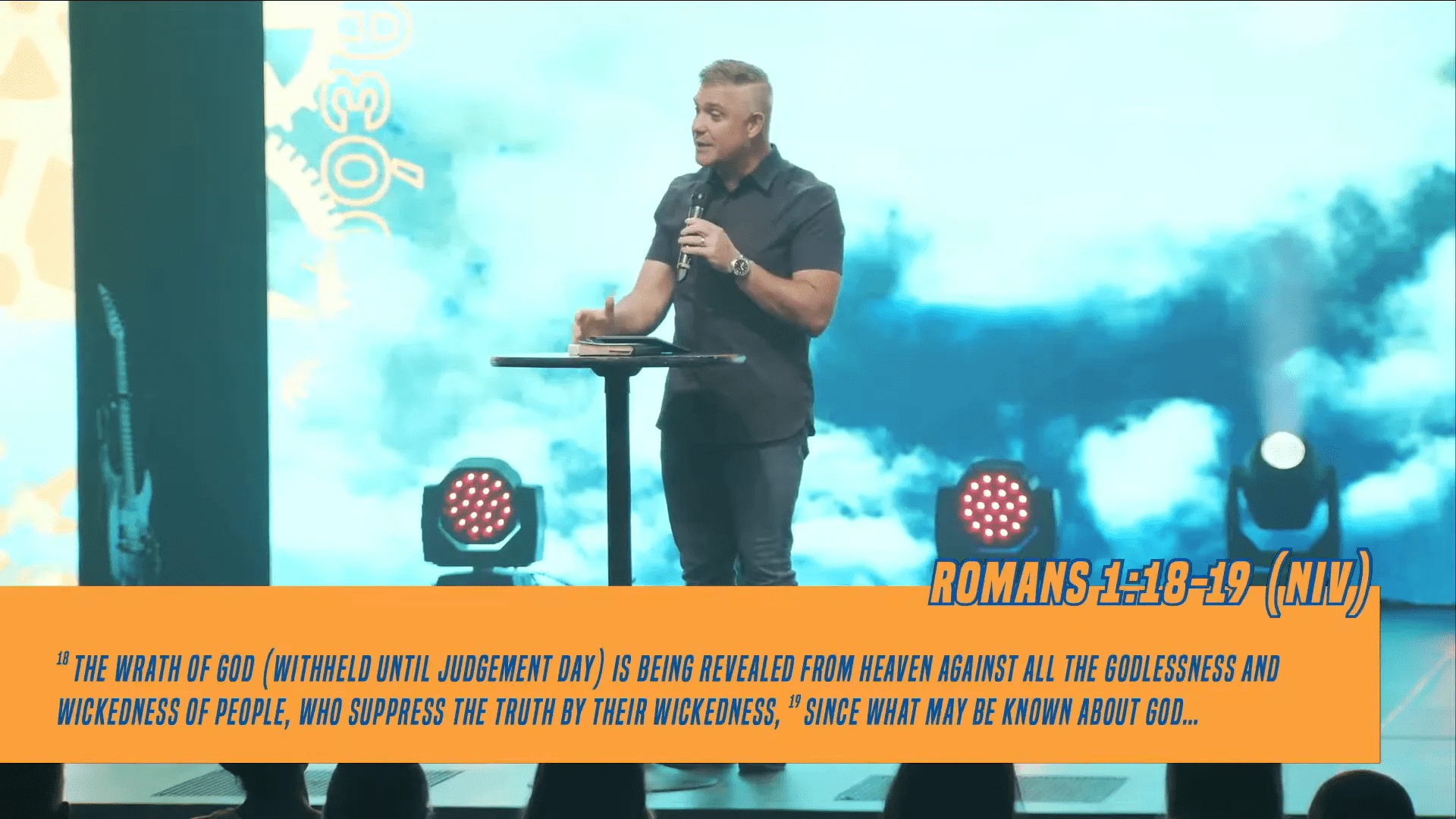Theos | Week 4 | Pastor Ben Pierce
Exploring the Afterlife: Heaven, Hell, and the Truth Within
In a world increasingly questioning the existence of an afterlife, the teachings surrounding heaven and hell remain crucial to understanding our spiritual journey. This blog delves into the theological foundations of the afterlife, offering insights into what happens after we take our last breath, and the implications of our choices in life.
Introduction to the Afterlife
The concept of the afterlife has captivated humanity throughout history. Many cultures, religions, and philosophies grapple with the question of what happens after we die. This exploration is not merely an academic pursuit; it speaks to the core of our existence and our understanding of life itself. The afterlife, whether viewed as a reward, punishment, or a continuation of our earthly journey, influences how we live today.
Beliefs about the afterlife often reflect deeper theological principles and moral frameworks. They shape our values, ethics, and ultimately, our choices. Understanding these beliefs can illuminate the human experience and provide comfort in the face of mortality.

Cultural Beliefs and Theological Foundations
Across the globe, diverse cultures possess unique interpretations of the afterlife. From the ancient Egyptians who believed in elaborate burial rituals to ensure a safe passage to the afterlife, to the Eastern philosophies that embrace reincarnation, these beliefs represent humanity’s quest for meaning beyond death.
In Christianity, the afterlife is often framed within the context of heaven and hell. Heaven is portrayed as a place of eternal communion with God, while hell serves as a stark reminder of the consequences of sin. These theological foundations are not just abstract concepts; they are deeply rooted in scripture and tradition.
- Judaism: Emphasizes the importance of life on earth and the concept of Olam Ha-Ba (the world to come).
- Islam: Teaches that the afterlife is a continuation of life on earth, where individuals are judged based on their actions.
- Buddhism: Focuses on the cycle of birth, death, and rebirth (samsara), with the ultimate goal of achieving Nirvana.
- Hinduism: Also embraces reincarnation, with karma influencing the soul’s journey through various lives.
These varied beliefs underline the universal human concern with what lies beyond death. Each culture’s understanding of the afterlife informs its moral teachings and societal norms, guiding individuals in their daily lives.

The Reality of Heaven and Sin’s Barrier
Heaven is often depicted as an idyllic paradise, a place free from pain and suffering, where individuals experience eternal joy in the presence of God. However, the pathway to this state of bliss is obstructed by sin. Sin creates a chasm between humanity and the divine, preventing access to the heavenly realm.
The idea that sin separates us from God is foundational in Christian theology. Scripture teaches that all have sinned and fall short of the glory of God (Romans 3:23). This universal condition necessitates a solution, highlighting the importance of redemption and reconciliation with God.
Understanding the nature of sin is crucial. Sin is not merely a list of transgressions but a fundamental flaw in humanity’s relationship with God. It manifests in various forms, from personal failings to systemic injustices, and it creates a barrier that cannot be crossed without intervention.
- Personal Sin: Individual actions and choices that violate God’s commands.
- Original Sin: The inherited nature of sin stems from humanity’s first disobedience.
- Social Sin: Collective injustices that arise from societal structures and norms.
Recognizing the reality of sin encourages a deeper understanding of the need for salvation. It emphasizes that without addressing this barrier, the hope of heaven remains unattainable.

Jesus as the Path to Salvation
In the Christian faith, Jesus Christ stands as the pivotal figure who bridges the gap between humanity and God. His sacrificial death and resurrection provide a pathway to salvation, offering forgiveness for sins and the promise of eternal life. This doctrine is central to Christian belief and underscores the significance of faith in Christ as the only means of accessing heaven.
Jesus himself declared, “I am the way, the truth, and the life. No one comes to the Father except through me” (John 14:6). This assertion is both inclusive and exclusive, inviting all to accept his grace while acknowledging that there is no alternative route to salvation.
The implications of accepting Jesus as the path to salvation are profound. It transforms the believer’s life, instilling a sense of purpose and a commitment to live according to God’s will. This relationship with Christ not only impacts the individual but also reverberates through communities, encouraging acts of love, justice, and mercy.
- Faith: Trusting in Jesus as Lord and Saviour is essential for salvation.
- Repentance: Turning away from sin and seeking forgiveness.
- Discipleship: Following Jesus’ teachings and living a life that reflects his love.
This journey of faith is not without challenges. It requires a conscious decision to reject the temptations of the world and embrace a life that aligns with God’s purposes. However, the promise of eternal life in heaven serves as a powerful motivator for believers, guiding them through trials and tribulations.

Understanding Hell and Its Controversy
The topic of hell often evokes strong emotions and heated debates. Many question how a loving God could allow such a place to exist. This controversy stems from differing interpretations of scripture and the nature of God. While some argue that hell is a construct of fear designed to control behavior, others view it as a necessary consequence of free will and justice.
At its core, hell represents the ultimate separation from God, a state of existence devoid of His presence and love. This separation is not arbitrary; it is a reflection of the choices made during one’s lifetime. The reality of hell serves as a sobering reminder of the consequences of rejecting God’s grace and mercy.
- Historical Context: Throughout history, hell has been depicted in various ways, often influenced by cultural beliefs and artistic interpretations.
- Theological Perspectives: Different denominations and theologians offer varying views on the nature, purpose, and duration of hell, contributing to the ongoing debate.
- Personal Responsibility: The controversy surrounding hell often leads to discussions about human responsibility and the choices that lead to eternal separation from God.

The Purpose of Hell and God’s Justice
Understanding the purpose of hell requires a deeper look at God’s justice. Hell is not simply a punishment; it is a manifestation of God’s holiness and justice. Sin cannot go unpunished, and hell serves as a rightful consequence for those who choose to live in opposition to God’s will.
God’s justice is rooted in His nature. As a holy and righteous being, He cannot overlook sin. Hell, therefore, is not an arbitrary punishment, but a necessary outcome of a just God. It emphasizes the seriousness of sin and the importance of repentance.
- Divine Justice: God’s justice ensures that sin is addressed appropriately, maintaining the moral order of the universe.
- Free Will: Humanity’s ability to choose means that individuals are accountable for their decisions, including the choice to reject God.
- God’s Love and Mercy: While hell exists, God’s desire is for all to come to repentance and know Him, highlighting His mercy and love.

Jesus’ Authority on the Afterlife
Jesus Christ’s teachings provide the clearest insight into the afterlife, including the existence of hell. His authority on this matter is unmatched, as He spoke on the subject more than anyone else in scripture. His words serve as a guiding light for understanding the consequences of our choices.
In the Gospels, Jesus emphasizes the reality of hell, warning against sin and the need for repentance. He does not shy away from discussing the severity of eternal separation from God, highlighting its importance for spiritual understanding.
- Direct Teachings: Jesus directly addresses hell in parables and teachings, reinforcing its reality and significance.
- Call to Repentance: His message consistently encourages individuals to turn away from sin and seek reconciliation with God.
- Ultimate Authority: As the Son of God, His words carry weight, providing a definitive understanding of the afterlife.

The Choice We Face and Conclusion
Ultimately, the existence of hell presents a choice for every individual. It is a choice between accepting God’s grace through Jesus Christ or rejecting it. This decision has eternal implications, shaping one’s destiny in the afterlife.
Understanding hell is not merely about fear; it is about recognizing the depth of God’s love and the seriousness of sin. The offer of salvation through faith in Christ presents a path to eternal life, free from the consequences of sin.
In conclusion, the exploration of heaven, hell, and the afterlife invites us to reflect on our choices and relationship with God. Embracing the truth of scripture and the teachings of Jesus allows us to navigate the complexities of faith with clarity and purpose.
- Embrace Grace: Accept the gift of salvation offered through Jesus Christ.
- Live Responsibly: Make choices that reflect a commitment to God and His ways.
- Share the Truth: Engage in conversations about the afterlife, helping others understand the significance of their choices.
As we ponder these profound truths, let us strive to live in a way that reflects our understanding of eternity, making choices that lead us closer to God and away from the realities of hell.
